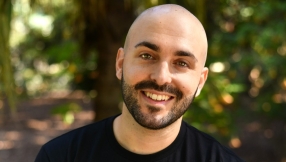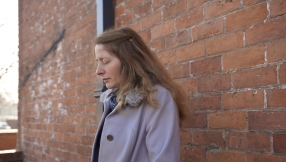Welsh women prisoners face neglect in English jails, warns Archbishop
Welsh women convicted of crimes are sent to prisons in England because there are currently no prisons in Wales that are able to accommodate women.
Dr Barry Morgan said the distance made it difficult and expensive for families to make the short visit times and put the women out of touch with Welsh news.
He was speaking following a pastoral visit to HMP Eastwood Park in Gloucestershire, where around 100 women – one third of the prison’s population – are Welsh. Most of the women stay at Eastwood Park, a remand prison, for around seven weeks before being sent to prisons further afield in Derby or Surrey to serve longer sentences.
“It seems very strange that I have to go across the border, and out of the province of Wales, in order to visit women prisoners from Wales. I met women from Dolgellau, Brecon, Llanelli, Porth, Pontypridd, Cardiff and Newport and they made the same plea – can we have a jail for women in Wales?”
The Archbishop warned that the distress of women at being in prison was far greater than that experienced by male Welsh prisoners “because in England they feel like strangers”.
“While conditions at Eastwood Park are impressive, with good support, caring staff and a very positive atmosphere, prison is still a frightening place for most women, particularly the younger ones who are still in their teens,” he said.
“Their biggest worry is that their families and friends won’t visit or can’t visit, because they are too far away.
“They also feel cut off from Wales because English prisons do not show Welsh television channels or have Welsh newspapers so they have no way of keeping up with things happening in Wales.
“They feel isolated and neglected.”
Dr Morgan expressed particular concern at the levels of self-harm among Welsh women prisoners at Eastwood Park, saying that many took to self-harming because of the “vulnerability, isolation and anxiety” they felt at being so far away from their homes, friends and family.
He added that many of the women arriving at Eastwood Park had problems with substance abuse and mental health issues, while others were worried about their family life.
“Many partners don’t stand by them. Up to a dozen women also have babies in prison and look after them there,” he said.
“It is vital that these women are given every chance possible to keep their lives together while they are in prison so that they have support and stability when they are released and a chance to break out of the cycle of crime.”
He said that despite Eastwood Park being one of the most impressive prisons he had ever visited, there still needed to be provision for Welsh women offenders within Wales.
“Locking them up far from home where, even with the best of care, they feel abandoned, worthless and forgotten will only condemn some of the most deprived people in society to a life spent constantly in and out of trouble,” he said.
The Archbishop was invited to Eastwood Park by the prison’s chaplain, Rev Judith Phillips. During his tour, he heard the concerns of Welsh women prisoners about serving sentences in an English prison. He also prayed for them and blessed them.
Rev Phillips said she invited the Archbishop because she felt women in prison were often invisible and forgotten and that the church had a duty to care for them.
“Women’s prisons tend to be invisible, even within the prison service, and the more people who know about them the better,” she said. “The needs of Welsh women in prison are similarly invisible.
“The Archbishop’s visit was seen by the women as a sign that they had not been forgotten despite being away from home.
“It gave him an opportunity to meet staff, so that the prison service can be reminded of the existence and needs of Welsh women and that the church recognises a pastoral responsibility to them.”













